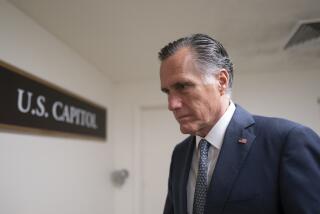Insiderâs son looks at the rise and fall of the New Deal
A popular saying in the middle years of the 20th century was, âThere oughta be a law,â meaning that there ought to be a law against whatever was bothering the speaker. Most Americans then looked on government as a good thing: a source of order, fairness and help. By 1980, however, Ronald Reagan was elected president after promising to âget government off peopleâs backs.â âDepression-era legislationâ has become the dismissive mantra of politicians engaged in denigrating many of the farseeing, carefully thought-out, equitable and largely successful actions developed as part of Franklin Delano Rooseveltâs New Deal, including Social Security, the Tennessee Valley Authority, the Securities and Exchange Commission, antitrust regulations and labor laws.
By now, shelves of books have attempted to answer the big question: What ever happened to the political climate that gave us the New Deal? Some have analyzed the changing social landscape; others have been in-depth studies of the extraordinary personalities involved in the New Deal, from Franklin and Eleanor Roosevelt to Harry Hopkins, Adolf Berle and Louis Brandeis. The picture that emerges is far from clear cut; whatâs mainly clear is its complexity. Journalist Michael Janewayâs âThe Fall of the House of Rooseveltâ does not really answer the big question, but it does contribute a small piece -- a tessera -- to that complicated mosaic of people, ideologies, policies, politics, alliances and feuds associated with the New Deal.
Janewayâs father, Eliot (also a journalist), seems to have been one of the key players in the New Deal, covering its unfolding developments in such Henry Luce outlets as Time and Fortune magazines and working behind the scenes with such New Deal insiders as Thomas G. Corcoran, Benjamin V. Cohen, William O. Douglas, Abe Fortas and Lyndon Johnson. Growing up in this milieu, young Michael (who as a college student in the late 1950s worked in Johnsonâs office when he was in the Senate) had a uniquely personal, if incomplete, view of what went on. Now, in this book, he has sought to combine his personal recollections with material from other sources to round out the picture.
Idealistic yet pragmatic, the New Dealers were determined to get things done. As the author explains, they âdidnât have to agree with a competing player to do business with him or even nurture camaraderie. The point was to develop connections, franchises, and constituencies formidable enough to command the respect of those in contending ones.â A quote from FDRâs brilliant and able lieutenant Corcoran illustrates this point: âI never learned to hate the men I disagreed with, nor those who opposed me when I had to act.â
Janeway relates this political pragmatism to the doctrine of âlegal realism,â which entailed judging laws and policies by their actual social and economic results rather than by abstract ideas and overarching principles. As some of the more reflective New Dealers seem to have recognized, however, this may have deprived the movement of the kind of inspiring ideology beyond mere policy (however excellent and expeditious the policy) that might have sustained it more broadly in the years that followed.
Then too, as Janeway points out, more than a few New Dealers (unlike the incorruptible Cohen but like the unfortunate Fortas), having become so adept at wheeling and dealing, later became caught up in various forms of corruption themselves. And when they came up against operators more unscrupulous than themselves (like John Mitchell, President Nixonâs attorney general, in the case of Fortas), their mistakes could prove their undoing. In addition to the natural tendency of power to go to peopleâs heads, Janeway also traces what he calls the fall of the House of Roosevelt to factions and infighting among the New Dealers and among the Democratic Party as a whole.
Some of the bookâs most fascinating material involves Janewayâs account of the efforts of his father and other New Dealers to make William O. Douglas the successor to Roosevelt, first by trying to get him on the ticket as vice president in 1944, then as a presidential candidate in 1948. Itâs amazing to realize how close they came to their goal. Janeway also presents an interesting and largely sympathetic portrait of Johnson as the last of the genuine New Dealers, a tragic figure who sincerely regretted not having been able to accomplish more of his social vision. Also noteworthy is Janewayâs perspective on his formidable mandarin father, who, as a young man, had been a Communist Party member. Yet Eliot Janeway was far less secretive about his political past than about the fact that he had been born Jewish and had changed his name from Jacobstein to Janeway at 15, something he told his son only when the latter reached the same age.
Containing new material and written from a particularly privileged vantage point, âThe Fall of the House of Rooseveltâ is a valuable contribution to New Deal history. Janewayâs writing style, alas, can be uninviting: He has an unfortunate knack for expressing simple ideas in a ponderous manner. But this drawback should not prevent readers from benefiting from the insights and information his book has to offer.
More to Read
Sign up for our Book Club newsletter
Get the latest news, events and more from the Los Angeles Times Book Club, and help us get L.A. reading and talking.
You may occasionally receive promotional content from the Los Angeles Times.








